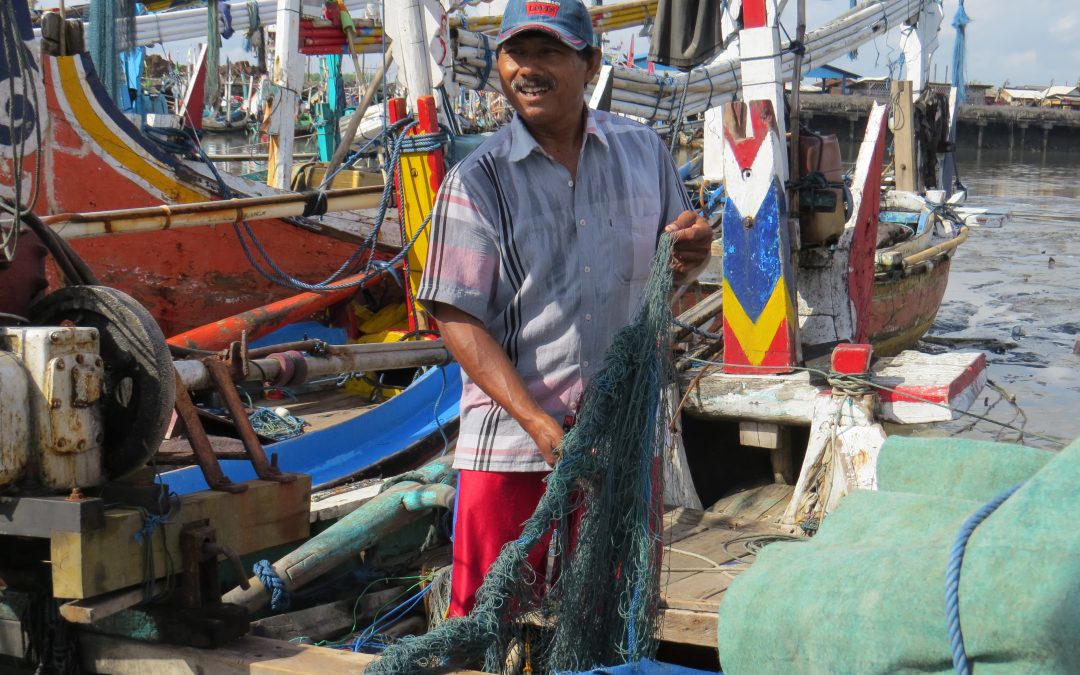Fishing vessels and the fish market are daily sights in Muncar. Fisheries are the main activity, and many people depend on the fishery sector for food and livelihoods. One of these people is Pak Sugiono, who has been working in the fishery since he was only nine years old, and began helping his father and other fishermen.
His first job was cleaning the traditional fishing boats known as jukung. If the jukung had a successful fishing trip he would be paid, receiving about 5 percent of the profit from the jukung owner. By working hard, he could manage to clean 15 jukung a day.
At 19 years old, Pak Sugiono has his first experience as a fisherman. When he started fishing, his jukung had a sail and relied on the wind for propulsion. If there was no wind, he would have to paddle, sometimes for up to 12 hours to return to port in Muncar.
“Being a fisherman today is easier than in the past. It used to be more risky because our safety was dependent on the wind and the weather. Even when fish were abundant, if the conditions were poor, our catches would spoil before we could land them. We didn’t have technology to keep the catch fresh onboard”, explained Pak Sugiono.
In the late 1970’s fishermen in Muncar began to use engines, but their lack of experience with this new technology caused many to experience engine failures. Pak Sugiono vividly remembers being stranded at sea for three days, dehydrated and with one ton of rotting fish surrounded by buzzing flies. He was lucky. A passing navy vessel happened to be patrolling the area and rescued him, but many others were not so lucky.
Today, technology has made the fishing sector safer. Well maintained boat engines are more reliable, and enable fishermen to return to port quickly even when the wind dies. Onboard refrigeration keeps catches fresh for longer. The expansion of mobile phone networks ensures that fishermen can call for help should they become stranded at sea.
But these technologies also bring problems. They enable fishermen to remain at sea longer, to travel further, to persevere in harsher conditions, and to catch a greater variety of species, including unwanted bycatch such as mobula rays. Pak Sugiono has seen some of the local fisheries decline over the years, as catches have dwindled.
Pak Sugiono added, “I am grateful to work as a fisherman. Fishing enables me to fulfil the needs of my family, and to keep our traditions alive. Technology has increased our safety at sea, but now I hope it can also enhance our competitiveness and our sustainability, enabling local fishermen to prosper and Muncar to maintain its tradition as a famous fishing area.”


